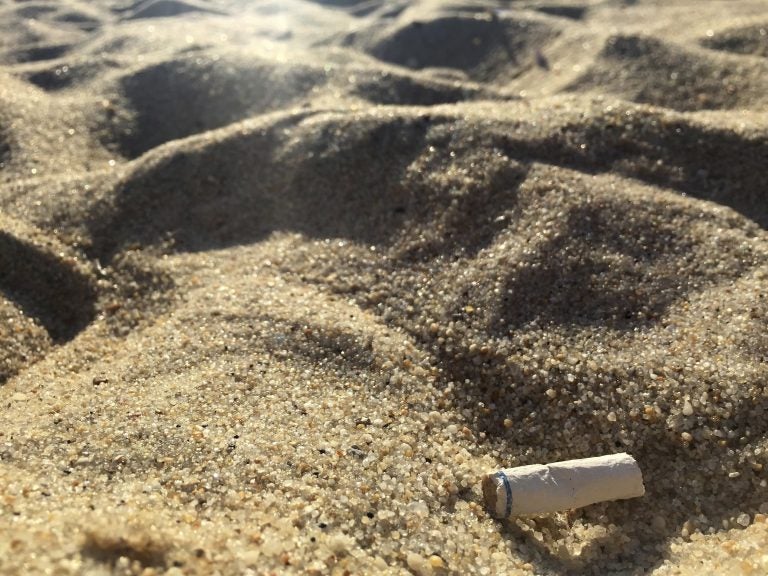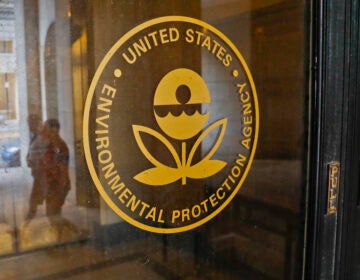Advocates cheer public health, environmental benefits of new N.J. smoking ban
A ban on smoking cigarettes and vaping takes effect January 16, 2019.

In this Aug. 25, 2018, photo a cigarette butt lies on the sand at beach in Middletown, N.J. Democratic Gov. Phil Murphy signed the bill banning smoking at the state's public beaches and parks in July, though local communities can opt out and designate small smoking sections. The law takes effect Jan. 16, 2019. (AP Photo/Jenny Kane)
Smokers will no longer be able to light up at New Jersey’s parks and beaches starting later this month, when a ban on smoking cigarettes and vaping takes effect.
Anti-smoking advocates have hailed the move as a step forward for public health in the Garden State, and environmentalists hope the ban will reduce the amount of smoking-related litter discarded along the Jersey Shore.
“The impact is positive on public health and also on normalizing smoke-free and vape-free environments for young people,” said Karen Blumenfeld, executive director of New Jersey Global Advisors on Smokefree Policy.
Blumenfeld said the ban would reduce the harmful impacts of secondhand smoke and may also nudge smokers hoping to kick the habit.
“It takes an average of seven attempts to quit smoking,” she said. “Smoke-free environments have been shown to help people who want to quit, quit.”
Environmental advocates also cheered the upcoming ban, which they believe will reduce the number of cigarette butts littering New Jersey beaches and improve conditions for marine life.
A 2017 beach sweep organized by Clean Ocean Action turned up 29,008 cigarette butts, 7,172 plastic cigar tips, 1,870 empty cigarette packs, and 1,155 lighters.
According to Clean Ocean Action executive director Cindy Zipf, cigarettes and other smoking paraphernalia discharge toxins into the environment and pose a choking hazard to animals.
“A cigarette butt floating along the surface of the water looks like a little crab or a fish to an unsuspecting bird or another fish,” Zipf said, “so they’re eaten because they look like they’re food sources.”
The law, signed in July by Democratic Gov. Phil Murphy, will allow smoking in parking lots and up to 15 percent of a park or beach if the municipality authorizes it.
Fines for violating the ban range from $250 to $1,000.
WHYY is your source for fact-based, in-depth journalism and information. As a nonprofit organization, we rely on financial support from readers like you. Please give today.




